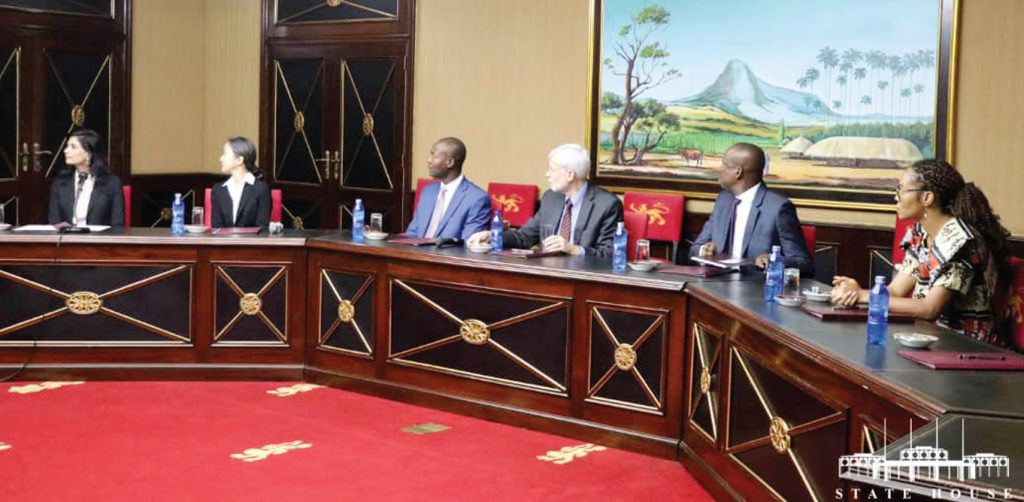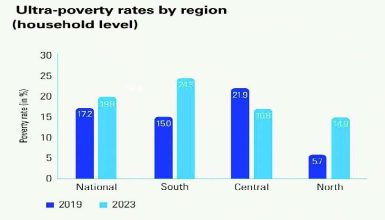IMF speaks on ECF challenges
The International Monetary Fund (IMF) says although staying on course with the Extended Credit Facility (ECF) is key to Malawi’s restoration of macro-economic stability, risks to the programme remain.
IMF resident representative Nelnan Koumtingue said this in an exclusive interview with Business News on Friday following the conclusion of the IMF staff visit which arrived in the country on Monday to monitor progress of the ECF programme.

He said: “The main purpose of this visit is to take stock of recent macroeconomic developments and the implementation of macroeconomic adjustments and reforms supported by the ECF.
“Risks to the programme include delays and/or weaker-than-expected implementation of policy adjustments, prolonged debt restructuring process, and further weather-related shocks.”
However, Koumtingue said upside risks, including a faster-than-anticipated impact of policy actions, successful export diversification, and budget over-performance remain.
He also indicated that the authorities’ efforts will be formally assessed in the context of the first review, which is expected to take place in the summer.
In November last year, Malawi got the nod of the IMF Executive Board for a four-year ECF worth $175 million (about K297 billion) expected to stabilise an ailing economy by unlocking directory budget support.
Among others, Malawi’s structural benchmarks under the ECF arrangement include repealing of the preferential treatment for motor vehicle and VAT relief for current and former politicians, senior public officials, judges and other similar privileged individuals and groups.
Authorities are also expected to repeal VAT relief for building materials, ensure that every supply ofa motor vehicle is standard rated for VAT purposes while they comprehensively eliminate VAT exemptions and zero ratings for business inputs.
The policy measures, which are expected to enhance revenue and improve tax and customs compliance culture, are meant to become effective by July 2024.
In their 2024/25 Budget proposal, Economics Association of Malawi noted that while the ECF remains critical for Malawi’s economic and financial reforms, there is need to realise limitations of the ECF.
During their visit, the IMF mission had discussions with the economic team led by Minister of Finance and Economic Planning Simplex Chithyola Banda.
Treasury was yet to respond to our questionnaire by press time at 4pm yesterday.
However, in a Letter of Intent to IMF managing director Kristalina Georgieva, Chithyola Banda and Reserve Bank of Malawi Governor Wilson Banda stated that Malawi was ready to take additional measures that may be needed over and above those articulated in the Meep in consultation with IMF staff in accordance with the fund’s policy.
Malawi sought a new ECF after cancelling the previous arrangement in September 2020 barely two months after the Tonse Alliance administration led by President Lazarus Chakwera ascended to power.
Following the cancellation, Malawi forfeited $70 million and total access under the cancelled three-year ECF was about $145 million, including the initial resource envelope of about $112.3 million approved in April 2018 plus $40 million under Augmentation of Access approved in November 2019.





